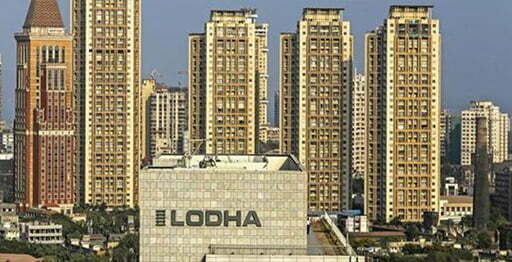Knowledge Hub
We have collected all our useful resources, information and updates into this knowledge hub.
The financial capital of India, Mumbai is an investment hotspot that boasts end-user interest throughout the year. Coupled by the employment opportunities, Mumbai also presents investment options in all price ranges although prospective buyers must be ready to look in the peripheries if they are in search of budget homes. Property prices in Mumbai vary with differences in the kind of infrastructure, connectivity, demand and supply in a given location. The annual price growth in Mumbai is estimated to be increased by 565 count and the annual rental yield is also up by 3.853055 percent.
About Services
About Services

Ready To Move
- Immediate Occupancy: Unlike under-construction properties, you can move in right after the purchase.
- No Construction Delays: You avoid the risks associated with construction delays
- No GST: In many regions, RTM properties are exempt from Goods and Services Tax.
- Investors: Those looking for rental income from day one.
New Launch
- Fresh Inventory: These are newly constructed or developed properties that have just been launched for sale.
- Modern Amenities: Often come with the latest amenities and facilities to attract buyers.
- Early Bird Discounts: Developers often offer attractive pricing and payment plans for early buyers.
- Affordable Housing: Many new launches target middle-income buyers with affordable pricing.


Villa
- Independent Structure: Villas are standalone houses with their own land plot, not attached to other properties.
- Luxury Amenities: Often come with upscale amenities such as private gardens, swimming pools, and high-end finishes.
- Modern Designs: Contemporary architecture with eco-friendly features.
- Privacy: No shared walls or common spaces with neighbors.
Pre Launch
- Exclusive Access: Available to a select group of buyers, typically those on developer’s lists or through referrals.
- Early Pricing: Offers lower introductory prices or special discounts to early buyers.
- Lower Prices: Often comes with attractive pricing for early investors.
- Investors: Seeking early access and potential capital appreciation.


New Launch
- Fresh Inventory: These are newly constructed or developed properties that have just been launched for sale.
- Modern Amenities: Often come with the latest amenities and facilities to attract buyers.
- Early Bird Discounts: Developers often offer attractive pricing and payment plans for early buyers.
- Affordable Housing: Many new launches target middle-income buyers with affordable pricing.

Pre Launch
- Exclusive Access: Available to a select group of buyers, typically those on developer’s lists or through referrals.
- Early Pricing: Offers lower introductory prices or special discounts to early buyers.
- Lower Prices: Often comes with attractive pricing for early investors.
- Investors: Seeking early access and potential capital appreciation.
‘Registration under RERA must’
The Registration Department here is asking details of (Real Estate Regulatory Authority) RERA registration to record documents of apartments, villas, and layouts.
“We got the government communication on Monday and it has come into effect immediately. However, we do not ask for RERA registration for second sales as RERA is only for the promoters,” an official said.
“We got the government communication on Monday and it has come into effect immediately. However, we do not ask for RERA registration for second sales as RERA is only for the promoters,” an official said.

The Registration Department asks for approval from the Directorate of Town and Country Planning or the authority concerned and now it has included RERA registration, the official said.
Read More
According to a document writer here, the Department is not registering documents if the RERA registration is not there. This order has come without any prior announcement and hence affecting consumers as they were not prepared for it. Now, they need to postpone registrations and wait for the RERA registration.
K. Kathirmathiyon, secretary of Coimbatore Consumer Cause, said according to the instructions given by the Department, “Where the area of land proposed to be developed exceeds 500 sq.mt. or the number of apartments proposed to be developed exceeds eight, inclusive of all phases, registration with RERA is mandatory for registration of the documents.”
This instruction was implemented all of a sudden, without any prior information or notification to the public. Registration of documents can be refused only if notified u/s 22A of Registration Act – as documents opposed to public policy and registration of unapproved sites is specifically banned under Section 22A of the Act. But, there is no provision in the Registration Act for mandatory RERA Registration.
Mr. Kathirmathiyon said if the total land developed exceeded 500 sq. mt (5,380 sq.ft), registration under RERA was mandatory. It meant all layouts needed to be registered, since 5,380 sq. ft meant normally more than just two sites. When the sites in approved layout were purchased, it was a one-time transaction between the promoter and the buyer. Hence, there should not be a need to ask for RERA registration. And, to regularise unapproved sites, the government had the regularisation scheme, he pointed out.
'LODHA GROUP'
The Mumbai-based group will be the development manager for the project, and will be responsible for leasing, project development, and asset management.
“Our marquee acquisitions and key partnerships for PILP have helped us establish a solid track record in the logistics sector. Through this formidable collaboration, we will leverage our development expertise along with MSREI’s industrial know-how as we expand and enhance the best-in-class industrial park. These are exciting yet crucial times for us as we expect more such strategic partnerships in the near future,” said Shaishav Dharia, chief executive, townships and rental assets, Lodha Group.
“Our marquee acquisitions and key partnerships for PILP have helped us establish a solid track record in the logistics sector. Through this formidable collaboration, we will leverage our development expertise along with MSREI’s industrial know-how as we expand and enhance the best-in-class industrial park. These are exciting yet crucial times for us as we expect more such strategic partnerships in the near future,” said Shaishav Dharia, chief executive, townships and rental assets, Lodha Group.

PILP is part of the 4,500-acre Palava city, its largest mixed-use development project.
Vineet Sekhsaria, executive director and head, MSREI, India, said: “We believe Palava will soon become the most strategic location for logistics and industrial development in western India. Given excellent infrastructure with multiple connectivity routes to the city and upcoming trans harbour sea-link, Palava will have benefits, unlike other locations.”
Earlier, the Lodha Group had signed a deal with Flyjac Logistics, a subsidiary of Hitachi Transport System Group, to sell 22.3 acres at the Palava industrial park.
Vineet Sekhsaria, executive director and head, MSREI, India, said: “We believe Palava will soon become the most strategic location for logistics and industrial development in western India. Given excellent infrastructure with multiple connectivity routes to the city and upcoming trans harbour sea-link, Palava will have benefits, unlike other locations.”
Earlier, the Lodha Group had signed a deal with Flyjac Logistics, a subsidiary of Hitachi Transport System Group, to sell 22.3 acres at the Palava industrial park.
'GODREJ PROPERTIES'
MUMBAI — In a country notorious for billionaire business family feuds, a 124-year-old Indian family conglomerate is aiming to break the mold without a whiff of conflict, as it puts finishing touches to a succession plan that would equitably divide family assets among members and hand the businesses to a new generation of leaders.
India’s Godrej Group, which controls an empire encompassing door locks to cleaning products with annual revenues of 379 billion rupees ($5 billion), is currently working with lawyers and bankers to untangle the complex cross-holdings among the group’s listed companies and reduce the tax burden on the transfer of huge swathes of land in Mumbai — an effort led by group patriarch Adi Godrej, 79, and cousin Jamshyd Godrej, 72.
Read More
As most Indian business feuds end up in court, the smooth transfer of assets of the Godrej Group — if it happens — may become the template for other wealthy families to follow. “The relatively noiseless process of distribution thus far has been a good indicator on multiple fronts,” said Sachidananda Benegal, a professor of strategic management at the Indian Institute of Management.
The five senior members of the Godrej family — Adi and his brother Nadir, Jamshyd and his sister Smita Crishna-Godrej, plus another cousin, Rishad — own equal stakes in the group’s companies and assets. The shares belonging to Rishad, who is childless, are expected to be distributed equally among the other family members upon his death, according to local media reports.
The group started its journey in 1897 when brothers Ardeshir and Pirojsha Godrej opened a lock-making company in Mumbai after failing in earlier ventures. Though the group is still popularly known for making locks, it has emerged as a global conglomerate with interests in consumer products, real estate and satellite manufacturing.
In addition to five companies listed on Indian stock exchanges, the family owns unlisted Godrej & Boyce Manufacturing, whose assets include largely undeveloped land worth 200 billion rupees. Godrej Properties, a listed entity, is developing some of the Godrej & Boyce land along with other projects across Mumbai, including redevelopment of a movie studio owned by the family of late actor Raj Kapoor.
India’s Godrej Group, which controls an empire encompassing door locks to cleaning products with annual revenues of 379 billion rupees ($5 billion), is currently working with lawyers and bankers to untangle the complex cross-holdings among the group’s listed companies and reduce the tax burden on the transfer of huge swathes of land in Mumbai — an effort led by group patriarch Adi Godrej, 79, and cousin Jamshyd Godrej, 72.
Read More
As most Indian business feuds end up in court, the smooth transfer of assets of the Godrej Group — if it happens — may become the template for other wealthy families to follow. “The relatively noiseless process of distribution thus far has been a good indicator on multiple fronts,” said Sachidananda Benegal, a professor of strategic management at the Indian Institute of Management.
The five senior members of the Godrej family — Adi and his brother Nadir, Jamshyd and his sister Smita Crishna-Godrej, plus another cousin, Rishad — own equal stakes in the group’s companies and assets. The shares belonging to Rishad, who is childless, are expected to be distributed equally among the other family members upon his death, according to local media reports.
The group started its journey in 1897 when brothers Ardeshir and Pirojsha Godrej opened a lock-making company in Mumbai after failing in earlier ventures. Though the group is still popularly known for making locks, it has emerged as a global conglomerate with interests in consumer products, real estate and satellite manufacturing.
In addition to five companies listed on Indian stock exchanges, the family owns unlisted Godrej & Boyce Manufacturing, whose assets include largely undeveloped land worth 200 billion rupees. Godrej Properties, a listed entity, is developing some of the Godrej & Boyce land along with other projects across Mumbai, including redevelopment of a movie studio owned by the family of late actor Raj Kapoor.
